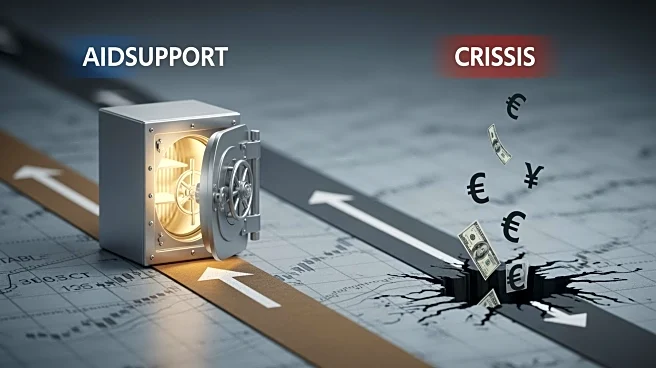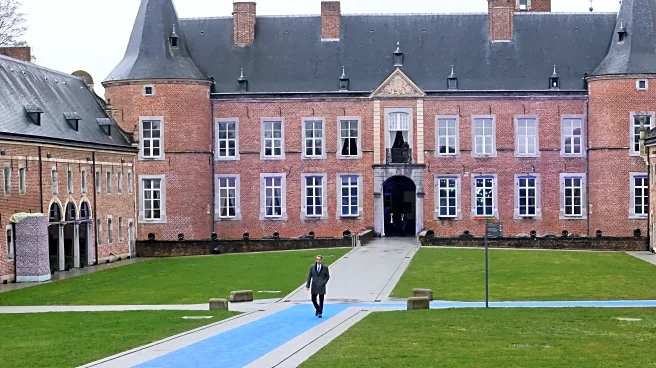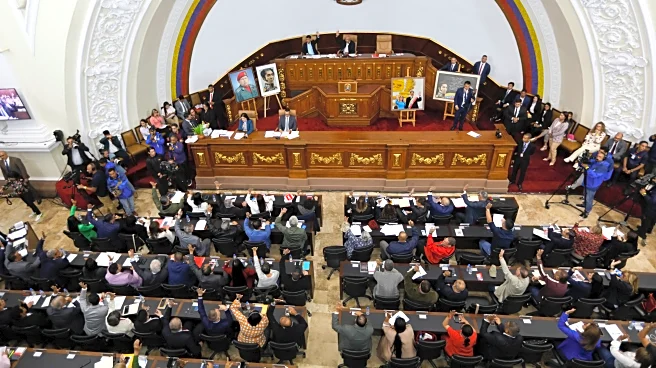What's Happening?
The Trump administration is preparing to increase financial aid to Argentina by an additional $20 billion, supplementing the existing $20 billion credit swap line pledged by the U.S. Treasury. This initiative
aims to support Argentina's struggling currency, with the financing sourced from sovereign funds and private sector banks. Treasury Secretary Scott Bessent emphasized the involvement of private banks and sovereign funds, indicating significant interest from these entities. President Trump, during a meeting with Argentine President Javier Milei, expressed a willingness to assist Argentina but linked the aid to the outcome of Argentina's upcoming midterm elections. Trump's comments led to a slight depreciation of the Argentine peso, which fell by 0.7% against the dollar.
Why It's Important?
The proposed financial aid package is crucial for Argentina as it faces a severe currency crisis. The U.S. support could stabilize the Argentine economy, which relies heavily on the dollar for savings. However, the conditional nature of the aid, tied to electoral outcomes, has sparked controversy. Critics argue that this approach could be seen as political interference, potentially affecting U.S.-Argentina relations. The aid package's success could bolster President Milei's position, while failure to secure it might exacerbate Argentina's economic challenges. The situation highlights the complex interplay between international aid and domestic politics.
What's Next?
The upcoming midterm elections in Argentina will be pivotal in determining the continuation of U.S. aid. If President Milei's party succeeds, the aid package is likely to proceed, offering potential relief to Argentina's economy. Conversely, a loss could lead to the withdrawal of support, intensifying economic pressures. The international community and financial markets will closely monitor the election results and subsequent U.S. actions. Argentine opposition leaders have already criticized Trump's conditional approach, suggesting potential diplomatic tensions.
Beyond the Headlines
The situation raises ethical questions about the use of financial aid as a political tool. The conditional nature of the aid could set a precedent for future international relations, where economic support is leveraged for political influence. This approach may impact global perceptions of U.S. foreign policy, particularly in Latin America, where historical interventions have shaped regional dynamics. The long-term implications could influence how countries negotiate aid agreements, balancing economic needs with political autonomy.











